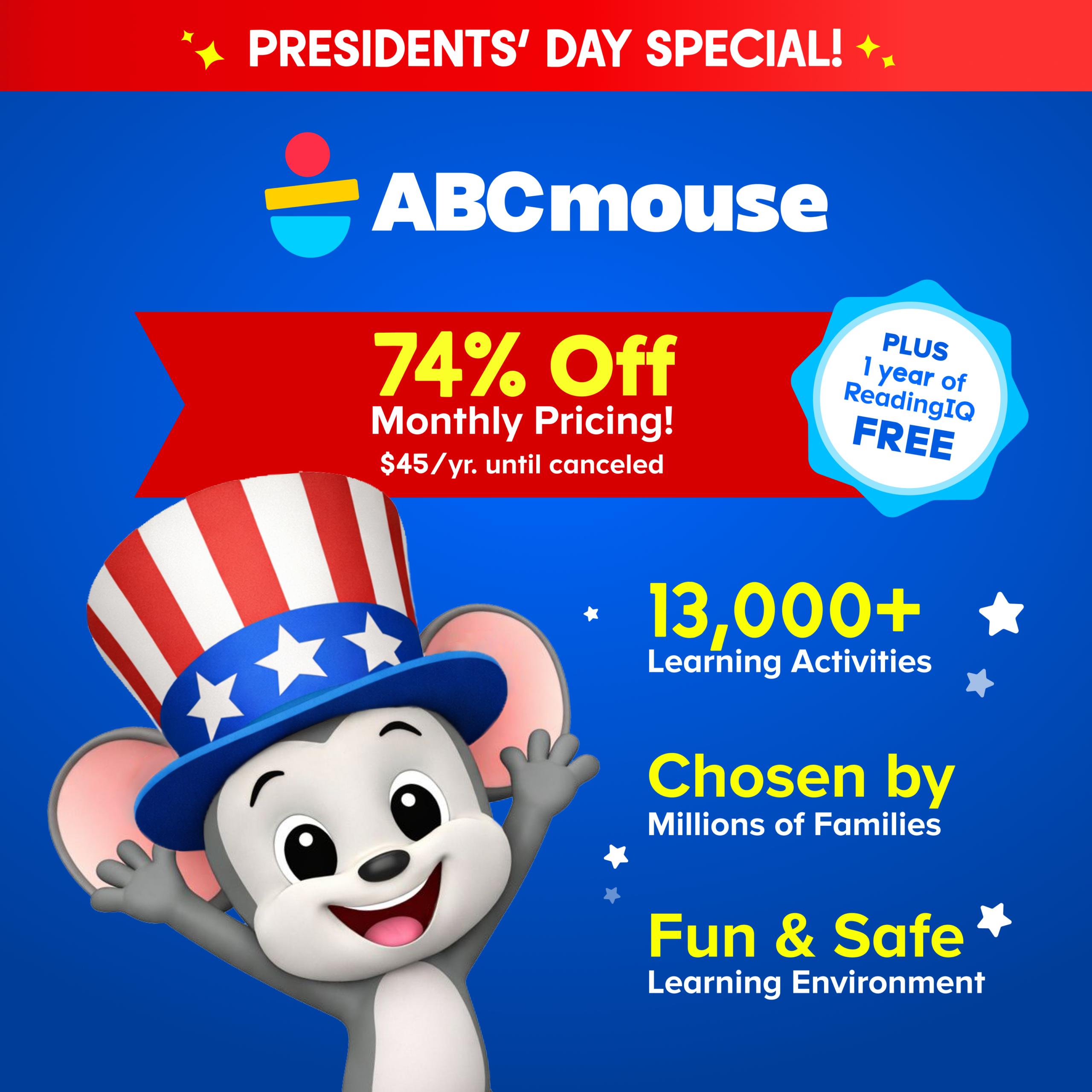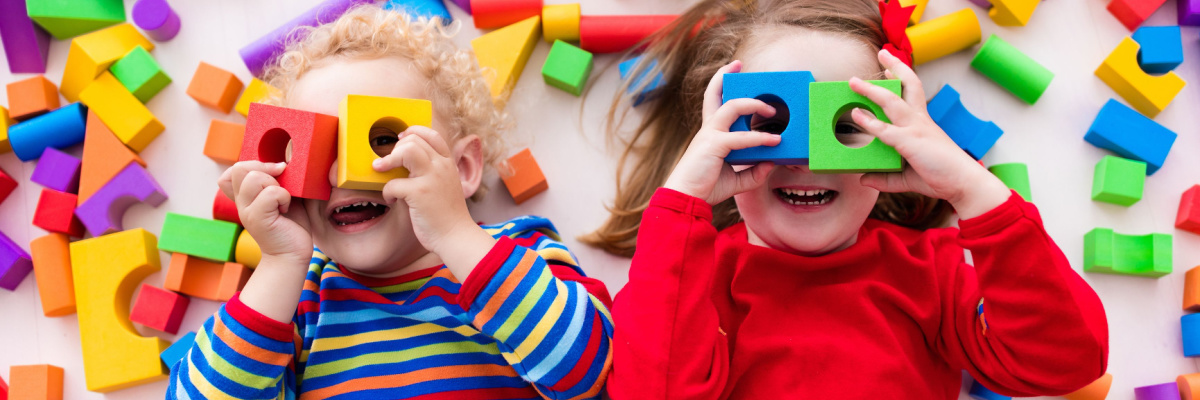
What is Play-Based Learning: Benefits and Examples
Discover the benefits of play-based learning and how it encourages children to learn through exploration, imagination, and self-directed activities.
There was a time when parents and educators considered “playing” and “learning” to be opposing activities. But we’ve since discovered that kids actually learn best through play. This is especially important at younger ages, but play-based learning is a valuable tool throughout a child’s education.
What is Play-Based Learning?
Simply put, play-based learning is exactly what it sounds like: children learning through play, whether on their own or in a guided setting. Kids learn through play from their earliest days, first by exploring their own hands and feet, then reaching out further into the world around them. A child’s mind is like a big sponge, and even infants are constantly experimenting to find out “What does this do?” and “What happens when I do this?”
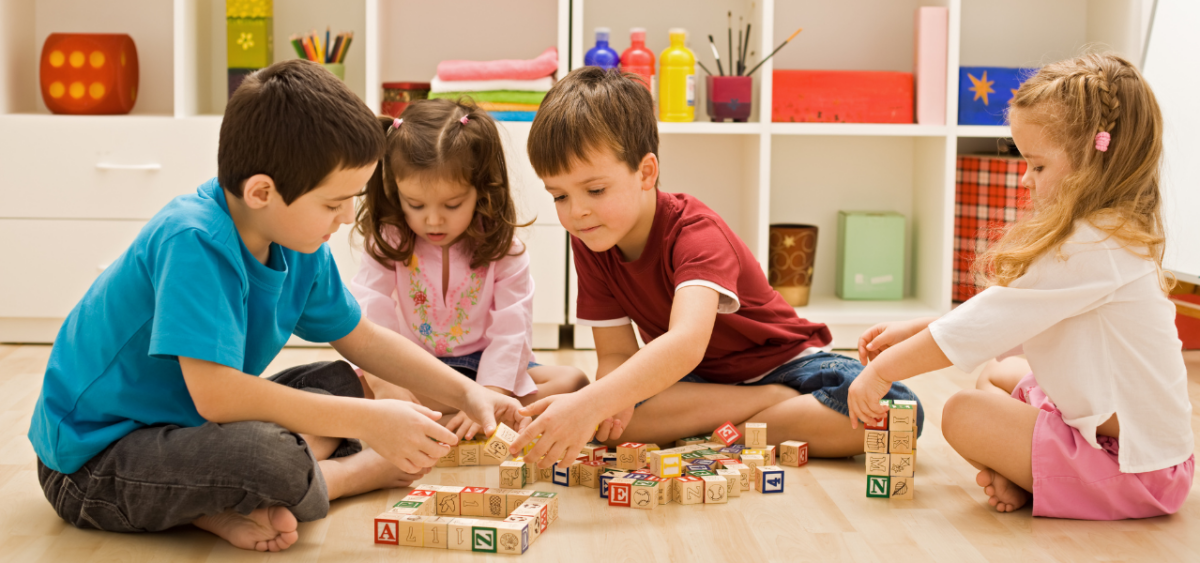
Nearly any kind of play can help children learn, especially when they’re very young. As they grow older, adults can help guide learning through play to tackle various concepts. The key, though, is to allow children freedom to explore in their own way as much as possible.
Play-based learning is all about experimenting and discovering.
There are several levels of play-based learning:
- Child Directed Free Play: In this type of play, kids are completely on their own to choose their own toys, activities, and games. Adults rarely step in during this kind of play.
- Teacher (or Parent) Guided Play: Here, adults and children play together. Kids choose the activity or toys, but parents or teachers guide them by asking open-ended questions and observing their actions.
- Teacher (or Parent) Directed Play: Adults provide the game or activity, explaining any rules or guidelines. This type of play is more structured, but children should still be given the opportunity to explore and discover on their own when possible.
Learning through play examples at various ages:
- Infant: Playing with fingers and toes; grabbing, touching, and pulling on objects around them
- Toddlers: Stacking toys; sandbox or water table play
- Preschool: Finger painting; dress up and pretending activities
- Elementary: Experiments and STEM challenges; educational board games
Elements of Play-Based Learning
While there are many ways to learn through play, some activities are more meaningful than others. Here’s what effective play-based learning looks like. For some inspiration, try these fun activities for 3-year-olds that encourage learning through play.
Self-Chosen or Self-Directed
This is one of the most important parts of learning through play. Kids learn best when they’re engaged, and the easiest way to engage them is to allow them to choose their own activities. Parents or teachers may provide toys or learning opportunities, but children themselves should take charge of their own play time.
This can be a real challenge for adults–allowing kids the freedom to explore the way they want to. We’re tempted to sit down and show them how to stack smaller objects on top of larger ones, or that if you turn the blocks this way, they fit together. But left to their own devices, kids will eventually discover these things on their own. And what’s more, they’ll learn how to learn, without waiting for someone else to show them how it’s done.
Enjoyable
There’s a tendency to think that if kids are having too much fun, they’re not really learning. In fact, the opposite is often true. When children find something they love to do, they’re likely to get more deeply involved, increasing the learning opportunities.
It’s important to note that “enjoyable” doesn’t have to mean “easy.” Sometimes kids get frustrated as they play, and adults want to step in and smooth things out. But when you let them work through the problems on their own, they’ll enjoy the triumph that comes from finding solutions. And that’s enjoyable too.
Unstructured
Here’s another challenge for many adults–allowing kids to play the way they want to. For instance, if you give your child a set of alphabet letter toys, you’ll probably be tempted to begin showing them how to put them in order right away.
But if you let your child play with them on their own, you’ll find they do all sorts of creative things. They might sort all the curved letters from the straight line letters, or trace the shapes with their fingers. These are learning activities in and of themselves.

Unstructured learning can feel chaotic and unorganized to adults who want children to learn specific concepts and ideas. But ultimately, this type of learning through play can be just as meaningful. It’s an especially important way to teach problem-solving and social skills.
Imaginative
Kids often have incredible imaginations, dreaming up activities, games, and scenarios adults would never think of. Encourage these imaginative activities when they play whenever you can. Imagination fosters creativity, a vital skill for us all. Creativity and imagination are what allow people to invent new things, develop new processes, and aspire to explore and discover above and beyond the familiar.

Empowering
If you’ve ever seen the look of joy on a child’s face when they suddenly figured out how something worked after multiple attempts, you know how empowering it is to learn on your own. Meaningful play-based learning helps kids understand that learning itself is valuable. Children build confidence in their own abilities, recognizing the value of exploring and experimenting. This mindset will benefit them throughout their entire lives.
It’s important to note that “enjoyable” doesn’t have to mean “easy.” Sometimes kids get frustrated as they play, and adults want to step in and smooth things out. But when you let them work through the problems on their own, they’ll enjoy the triumph that comes from finding solutions. And that’s enjoyable too.
Benefits of Play-Based Learning
Educators have found learning through play to be incredibly beneficial at all ages. These are some of the biggest advantages of play-based learning.
- Builds Language and Motor Control
Little learners build vocabulary more effectively when they acquire it through engaging play. They also make big gains in both fine and gross motor control by experimenting, stacking, manipulating, and otherwise playing with toys and objects in new and unique ways.
- Develops Social Emotional Skills
As children play together, they build cooperation, collaboration, and other social skills. They learn to share and take turns, and work out conflicts with their peers. They also learn to manage their own emotions, and the emotions of others.
- Fosters Creativity and Imagination
There’s no such thing as too creative when it comes to learning! Creativity is the mother of invention, and when we allow kids to imagine new things, they learn to embrace unconventional ideas and concepts. This fosters a sense of open-mindedness and acceptance, valuable traits in today’s world.
- Cultivates Problem-Solving Skills
When adults refrain from stepping in too quickly, kids learn to solve their own problems. Imagine a toddler trying to stack blocks of different sizes and shapes. Adults already know they’ll need to put bigger items on the bottom and stack flat edges together. You can show a child these things, of course, but when they discover those concepts through independent play, they’ve also learned the persistence to experiment and solve problems on their own.
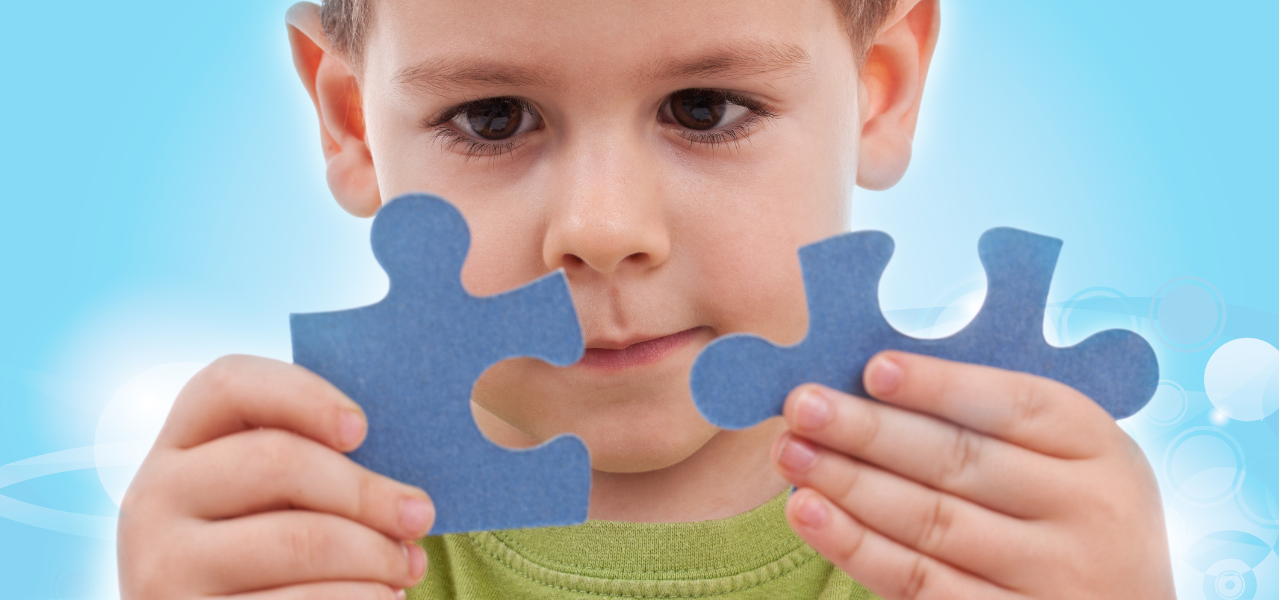
- Encourages Risk-Taking
Play-based learning can help build a growth mindset. When kids aren’t afraid to fail, they really begin to learn. After all, we can often learn a lot more from a failure than a success. Let kids make their own discoveries, and teach them to view failure as something that simply happens along a learning journey.
- Promotes Self-Confidence
Nothing builds self-confidence like figuring something out for yourself. Play-based learning gives kids the chance to do just that. They’ll develop the confidence to take risks, overcome failure, and dream up new and creative ideas.
- Helps Children Learn How to Learn
Learning to learn is often more valuable than the concept itself, because kids can apply those methods to new ideas and concepts in the future. Play-based learning lets them build skills independently, giving them concrete approaches for tackling new subjects as they grow.
- Teaches Kids to Love Learning
When learning is enjoyable, engaging, and meaningful, kids will seek it out on their own. You’ll know play-based learning is a success when your child is excited to learn new things, in and out of a classroom.
Research Behind Play-Based Learning
Play-based learning theory has been confirmed by a variety of research. Educators, child psychologists, and other experts have explored the benefits of allowing kids to learn through play, and made some amazing discoveries.
- “Guided play [has] a greater positive effect than direct instruction on early maths skills, shape knowledge, and task switching.” (Society for Research in Child Development, 2022)
- “Child-led play fosters … key competencies, which include self-management, creativity, problem-solving, risk-taking, relating to others, language development and cooperative learning.” (popatplay/Project Zero, 2023)
- “Play helps children deal with stress, such as life transitions. When 3- to 4-year-old children who were anxious about entering preschool were randomly assigned to play with toys or peers for 15 minutes compared with listening to a teacher reading a story, the play group showed a twofold decrease in anxiety after the intervention.” (American Academy of Pediatrics, 2018)
For more on the research behind play-based learning, try these resources:
Play-Based Learning Curriculum
Here at ABCmouse, we believe strongly in play-based learning theory. We know that the best learning is the kind that kids actively seek out and enjoy. When kids enjoy learning, they make meaningful connections that last a lifetime. They also learn more quickly when they have fun along the way.
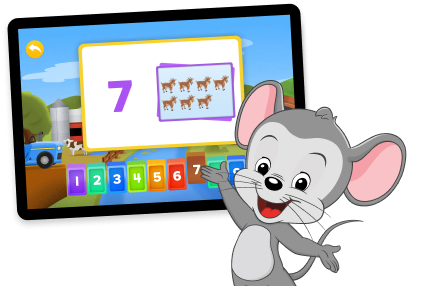
Our play-based learning curriculum is full of games and activities that offer guided and directed opportunities to learn through play. Kids direct their own learning by setting a pace that works for them. They explore and experiment, taking risks and learning from their mistakes.
Even better? It’s truly fun! Parents report that kids have such a good time with ABCMouse that they don’t want to stop. That’s the effect of play-based learning: kids actively seek out new and authentic educational experiences. Give your kids the chance to try learning through play with ABCmouse here.
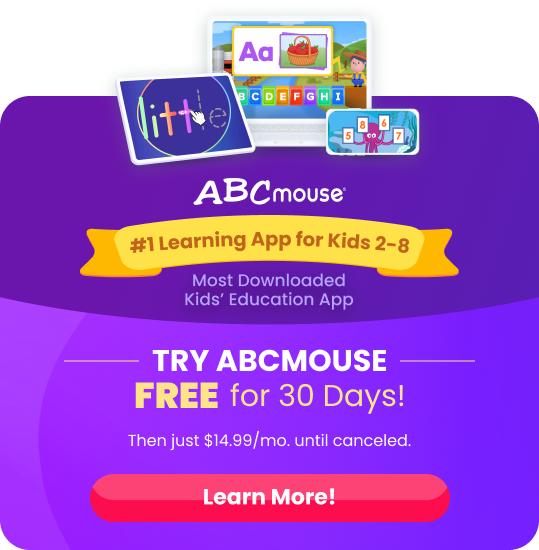
Legal Disclaimer: Any information, materials, or links to third-party resources are provided for informational purposes only. We are not affiliated with and do not sponsor/endorse these third parties and bear no responsibility for the accuracy of content on any external site.


